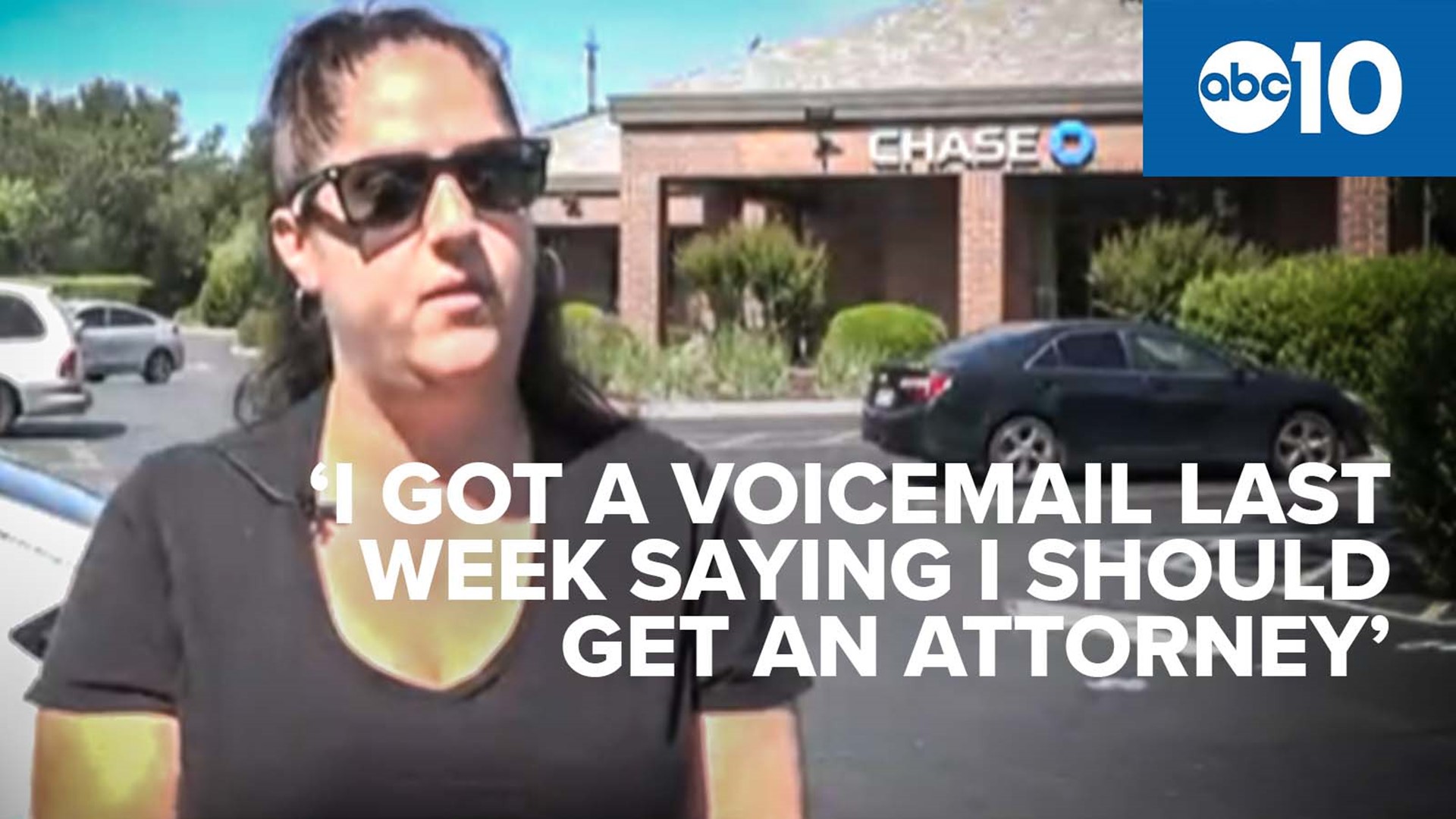RANCHO CORDOVA, Calif. — A Rancho Cordova woman says her savings was wiped out by a person posing as a bank employee.
Lona Rose recently moved to Rancho Cordova from the Bay Area and switched banks in the process, going from Bank of America to Chase Bank.
However back in April, she said she received several text messages that appeared to be fraud alerts from Chase and were followed by a call from a man posing as an employee. She said she was told to wire the money in her savings account to an 'official' account because of a 'fraudulent transaction'.
"He goes 'OK, this is what we need to do. You need to move the money out of your savings and protect it and put it in your checking.' And I said, 'Well, I don't see it,' and he said 'It's in the process. It's heading there,'" Rose said. "There were some triggers where I was like, 'Something's not adding up.'"
In just minutes, $6,000 was wiped out from her savings account.
"It does make me angry. There's a lot of shock," said Rose.
Over a month later, Rose still hasn't gotten her money back, putting her behind on some bills and leaving her without an emergency fund.
"I filed a report, went to the credit bureau and got the executive office of Chase to contact me," Rose said. "They will not give it (the money) back to me. They told me that I should get an attorney, but they (said they) are not gonna give me the money back that it was my fault."
Rose said she thinks the bank doesn't have enough security measures in place, and wants them to step up and reimburse the money she lost. Meanwhile, she offered advice to others on how to protect their savings.
"Put it in a credit union where it's a lot more secure, where wires cannot be done unless you go into the branch. If somebody calls you, I would just hang up with them and call your bank. There's too much spam," Rose said.
ABC10 reached out to Chase Bank for comment and received the following statement.
"We're sorry that Ms. Rose was the victim of a scam and authorized the payment. We have requested the money back from the receiving bank, but that may take up to 90 days and the results aren't guaranteed. We urge all consumers never to share their banking password or to send money to someone they don't know. Bank employees won't call, text or email consumers asking for this, but crooks will," JPMorgan Chase & Co told ABC10.
According to Consumer Issues, the most common banking scams are overpayment, phishing texts and check fraud.



















